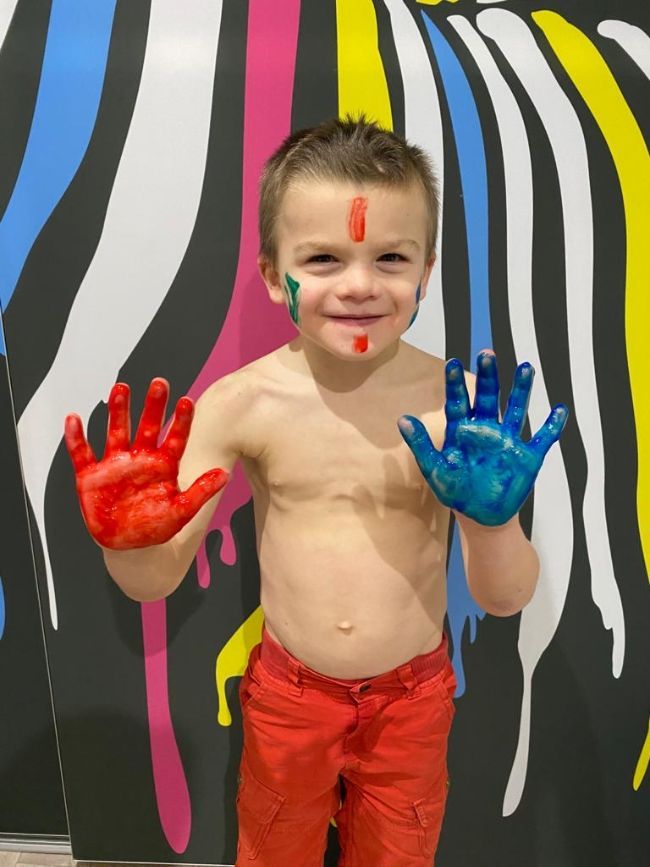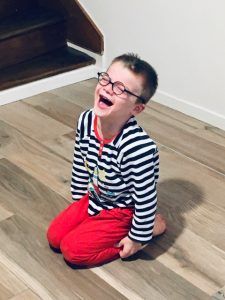Notre petit soleil

Aujourd’hui est une journée de sensibilisation aux maladies génétiques rares.. Nous ne nous étions jusque là jamais réellement intéressés au sujet.. Nous ne savions pas à l’arrivée d Helio que nous vivrions un véritable combat avec et pour lui.. Un combat quotidien qui a démarré dès ses 9 mois avec des heures, des jours et des mois de recherches, d’acharnement pour trouver de l’aide, comprendre, avancer, se battre contre les préjugés.
On restera 5 ans avec une errance de diagnostic..Et puis, à force de persévérance et de rencontres, nous avons enfin pu poser un nom, avoir une explication sur cette singularité que porte notre bonhomme.
Helio fait partie de cette rare, tres rare famille OCNDS.. On découvre donc depuis 1 an toute une communauté qui nous permet d’échanger sur ce syndrome génétique.. un réconfort auprès de personnes totalement étrangères mais aussi très unies par cette épreuve commune.
Vivre avec helio, un enfant extraordinaire, est un combat permanent, parsemé d embûches mais aussi tellement enrichissant qui nous apprend à nous surpasser..Helio est un véritable rayon de soleil, toujours souriant, combatif, volontaire, et rempli d amour pour les autres.
Nous apprenons à tatons, avec le bonheur de le voir grandir et se developper, et l’espoir de lui permettre de grandir et de trouver sa place dans le monde.

Today is a day of awareness of rare genetic diseases. We had never really been interested in the subject. We did not know when Helio arrived that we would be fighting with and for him. A daily struggle that began as early as 9 months with hours, days and months of research, hard work to find help, understand, advance, fight against prejudice.
We have been wandering for five years for a diagnosis. And then, through perseverance and encounters, we were finally able to put down a name, to have an explanation of this singularity that our little man carries. Helio is part of this rare, very rare OCNDS family. It has been a year since we’ve discovered a whole community that allows us to exchange on this genetic syndrome. comfort to people who are totally foreign but also very united by this common ordeal.
Living with Helio, an extraordinary child, is a constant struggle, full of pitfalls but also so rewarding that teaches us to surpass ourselves. Helio is a true ray of sunshine, always smiling, combative, willing, and filled with love for others. We learn to grope, with the happiness of seeing him grow and develop, and the hope to allow him to grow and find his place in the world.
Aurélie
